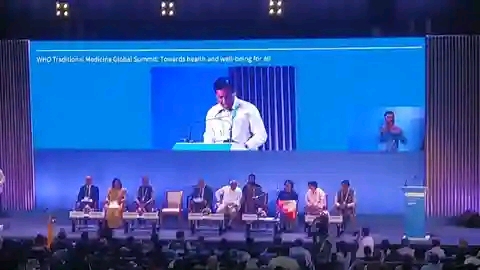In China, traditional medicine has a distinguished history, but top European medical bodies have previously demanded it be subject to the same regulatory oversight as conventional medical methods.

The World Health Organization opened its first summit on traditional medicine on Thursday, with the group saying it was seeking to collect evidence and data to allow for the safe use of such treatments.
Traditional medicines are a “first port of call for millions of people worldwide”, the UN health agency said, with the talks in India bringing together policymakers and academics aiming to “mobilise political commitment and evidence-based action” towards them.
The UN health agency defines traditional medicine as the knowledge, skills and practices used over time to maintain health and prevent, diagnose and treat physical and mental illness.
Of the WHO’s 194 member states, 170 acknowledged their use of traditional and complementary medicine since 2018, but only 124 reported having laws or regulations for the use of herbal medicines — while only half had a national policy on such methods and medicines.
“Natural doesn’t always mean safe, and centuries of use are not a guarantee of efficacy; therefore, scientific method and process must be applied to provide the rigorous evidence required,” the WHO said.
About 40 percent of approved pharmaceutical products currently in use derive from a “natural product basis”, according to the WHO, citing “landmark drugs” that derive from traditional medicine, including aspirin, drawing on formulations using willow tree bark.
Traditional medicine could boost healthcare “access gaps”, but was of value only if used “appropriately, effectively, and above all, safely based on the latest scientific evidence”, Tedros warned earlier.
The two-day WHO Traditional Medicine Global Summit takes place alongside a meeting of G20 health ministers in the Indian city of Gandhinagar.
The summit, set to become a regular event, follows the opening last year of a WHO Global Centre for Traditional Medicine, also in India’s Gujarat state.
Use of homemade remedies soared during the Covid-19 pandemic, including a green herbal drink based on Artemisia that was promoted by Madagascar’s president as a cure.
The plant has a proven efficacy in malaria treatment, but its use to combat Covid was widely scorned by many doctors.







